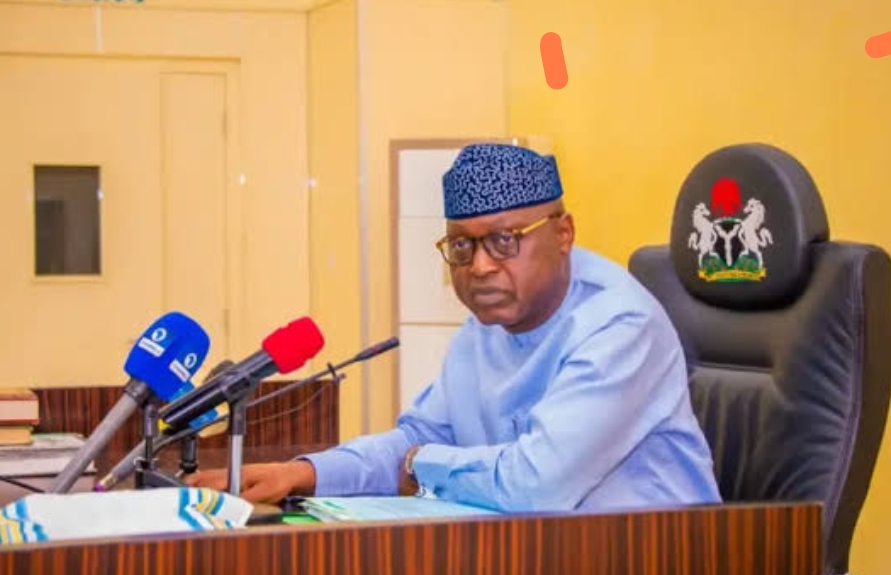Governor Oyebanji Sacks Ekiti Cabinet Members
Ekiti State Governor Abiodun Oyebanji in a significant political shake-up has announced the dissolution of the State Executive Council, with immediate effect.
The decision, disclosed through a statement issued by the Secretary to the State Government (SSG), Professor Habibat Adubiaro, affects several Commissioners and Special Advisers who are now required to hand over to the Permanent Secretaries or the most senior civil servants in their respective ministries, departments, and agencies (MDAs).
The move marks a major restructuring within Oyebanji’s administration and comes as part of what political observers see as a bid to reposition the government ahead of new policy directions. The governor expressed gratitude to the outgoing officials for their service, wishing them success in their future engagements.
According to the release by the Ekiti state SSG, the dissolution is not a blanket measure, as several key members of the cabinet will retain their positions. According to the statement, the Attorney General and Commissioner for Justice remains in office, alongside the Commissioners for Health and Human Services, Agriculture and Food Security, Education, Works, and Trade, Investment, Industry and Cooperatives.
Similarly, two Special Advisers—on Special Education and Social Inclusion, and on Lands, Survey and e-GIS—will continue in their roles. These retained positions signal the governor’s intent to maintain stability in critical sectors while introducing new leadership in others.
The directive also spares certain Directors General who serve as members of the State Executive Council. These include the Director General of the Office of Transformation and Service Delivery (OTSD), the Director General in charge of Sustainable Development Goals (SDGs) and Project Monitoring, and the Director General of the Bureau of Public Procurement.
By retaining these strategic figures, Governor Oyebanji appears to be safeguarding continuity in project implementation, public service reform, and fiscal accountability—areas central to the administration’s ongoing development agenda.
While the official statement did not outline reasons for the dissolution, political analysts have offered several interpretations. One possibility is that the move forms part of a mid-term evaluation process, allowing the governor to assess the performance of his appointees and make adjustments to better align with his policy vision.
Given that Oyebanji has been vocal about his commitment to efficient governance and economic growth, this reshuffle could be aimed at injecting fresh energy into ministries that require faster results.
Some observers also suggest that the decision could be linked to political strategy, particularly with the 2026 gubernatorial election cycle gradually approaching. By reorganizing his team now, the governor may be positioning his administration for stronger performance metrics to present to voters in the coming years.
The reshuffle is expected to usher in a period of transition as ministries adjust to interim leadership by Permanent Secretaries until new appointments are announced. This may temporarily slow down certain projects, but the retained commissioners and directors general are likely to ensure continuity in key policy areas.
Political insiders believe the next wave of appointments will be closely watched, as they could reveal Oyebanji’s evolving alliances within the ruling All Progressives Congress (APC). The composition of the new cabinet will also signal the governor’s priorities for the second half of his term.
The public response to the announcement has been mixed. Some residents and political commentators see the dissolution as a bold step toward better governance, while others are concerned about potential disruptions to ongoing programs.
Civil society groups in Ekiti have called on the governor to prioritize competence, transparency, and regional representation in selecting new appointees. They argue that fresh appointments should not be based solely on political loyalty but should also reflect merit and the capacity to deliver tangible results for citizens.
What Comes Next
With several strategic portfolios now vacant, the coming weeks will be critical for the administration. The governor’s choice of replacements will likely determine whether the reshuffle translates into improved service delivery or merely reshapes the political landscape without substantive change.
For now, the affected Commissioners and Special Advisers will begin the process of handing over to their respective Permanent Secretaries, ensuring that no vacuum exists in the daily operations of the state government.
Governor Oyebanji’s action is one of the most extensive cabinet changes in recent Ekiti political history. Whether it will achieve its intended objectives will depend on how quickly and effectively the new appointees—once announced—can adapt to the demands of their offices and deliver on the administration’s promises to the people of Ekiti State.



